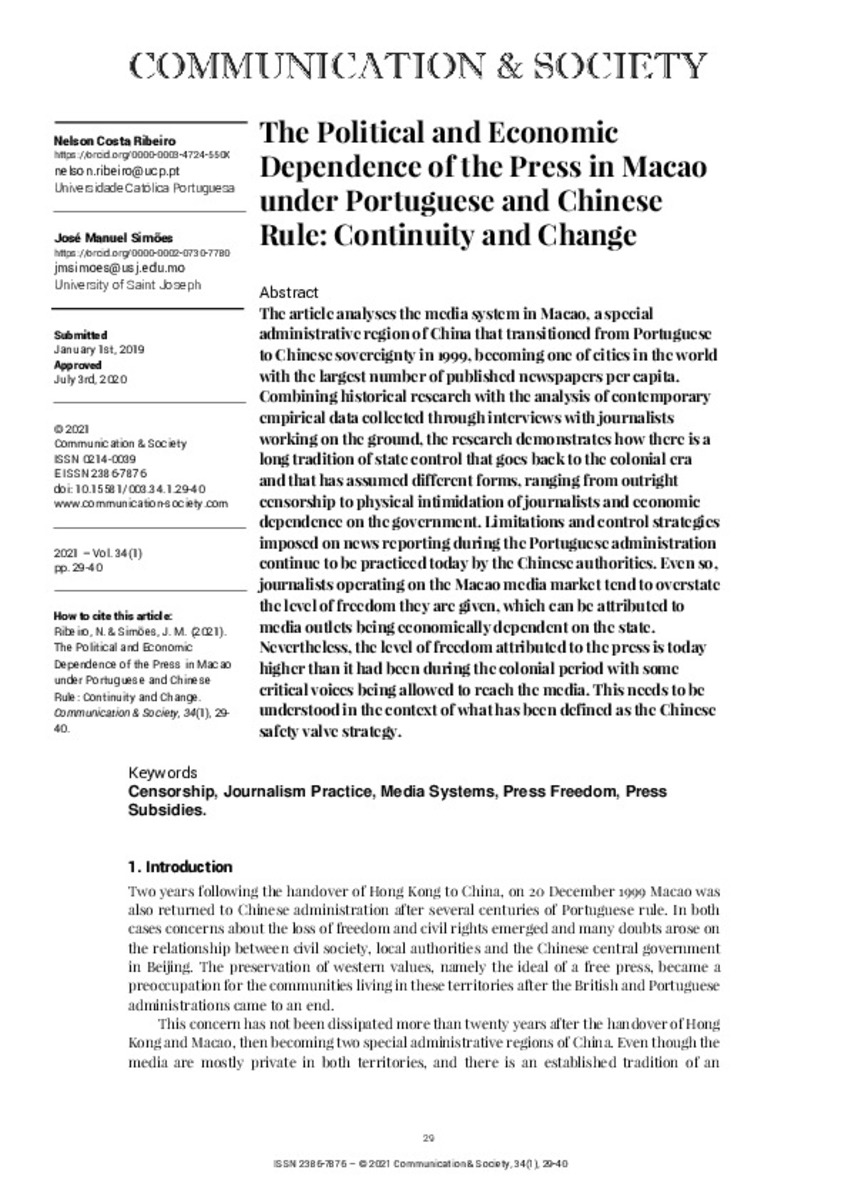The Political and Economic Dependence of the Press in Macao under Portuguese and Chinese Rule: Continuity and Change
Publisher:
Servicio de Publicaciones de la Universidad de Navarra
Citation:
Costa-Ribeiro, N,. (Nelson); Simões, J.M. (José Manuel). "The Political and Economic Dependence of the Press in Macao under Portuguese and Chinese Rule: Continuity and Change". Communication & Society. 34 (1), 2021, 29 - 40
Statistics and impact
0 citas en

0 citas en

Items in Dadun are protected by copyright, with all rights reserved, unless otherwise indicated.







